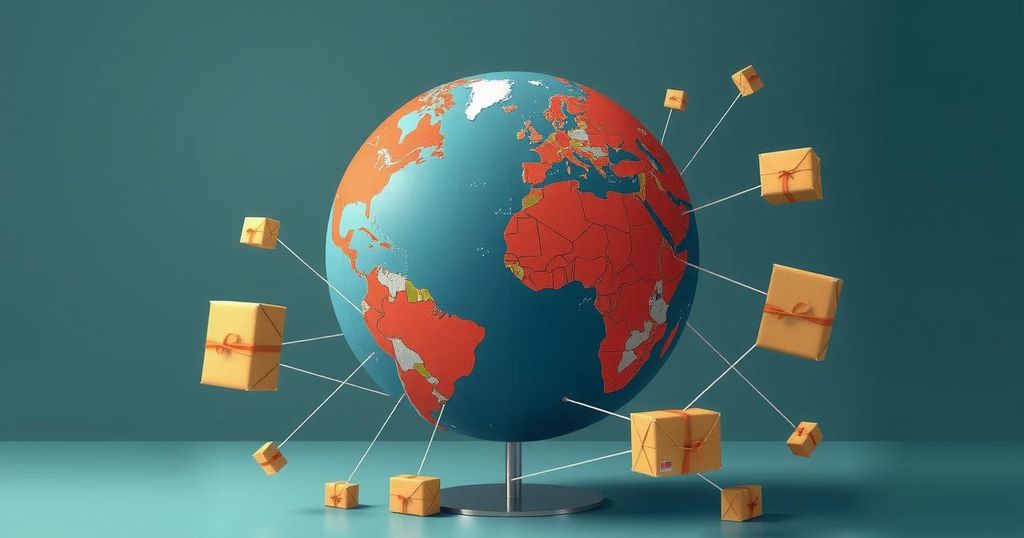President Trump has frozen nearly all foreign aid, affecting billions in funding globally. The freeze targets various programs, with enormous implications for healthcare, education, and humanitarian efforts. Key nations like Ukraine, Jordan, and Yemen will feel the impact, while agencies scramble to respond to potential crises. The future landscape of U.S. foreign assistance hangs in the balance as evaluations are conducted.
On his first day in office, President Donald Trump initiated a temporary halt to foreign assistance, part of his “America First” policy, grounding billions of dollars in global funding. State Department spokesperson Tammy Bruce communicated that the U.S. will no longer distribute funds without justified returns for American taxpayers. This freeze on aid has raised alarms internationally, as humanitarian organizations warn it could jeopardize countless lives across many countries.
The freeze primarily affects the $72 billion in foreign aid that the U.S. distributed in 2023 across nearly 180 nations. Secretary of State Marco Rubio is tasked with reviewing existing programs, deciding whether to continue, modify, or cancel them. While emergency food programs in disaster-stricken regions and military aid to key allies like Israel and Egypt remain unaffected, various humanitarian projects now hang in balance.
Prominent among the affected initiatives is the President’s Emergency Plan for AIDS Relief (PEPFAR), which has been vital for millions since its inception. Aid organizations have voiced their distress, arguing that without immediate funding, critical health services may cease, potentially endangering lives significantly. Rachel Bonnifield warned that this abrupt halt could lead to fatalities among vulnerable populations reliant on U.S.-funded services.
Distribution of foreign assistance shows that by 2023, significant funding went to Ukraine, followed by Jordan and Yemen. The U.S. employs several federal entities to dispense this aid, with much allocated towards economic development, health, and humanitarian efforts. Military aid has notably gone to established allies, reinforcing long-standing geopolitical ties.
In response to the funding freeze, international organizations are urgently evaluating their operational budgets. Filippo Grandi, the UN High Commissioner for Refugees, emphasized the potential negative impact on millions reliant on U.S. support. As global entities scramble to adapt, the political implications of this funding shift may reshape how other nations engage with U.S. aid in the future.
The topic centers on President Donald Trump’s decision to suspend foreign aid as part of a broader effort to implement his “America First” strategy. This action signifies a substantial shift in U.S. foreign policy, emphasizing national interests over international humanitarian commitments. The immediate consequences are expected to affect various global health, development, and security initiatives, impacting both recipient nations and international aid organizations that rely on U.S. funding.
In conclusion, the suspension of foreign aid initiated by President Trump poses severe risks to global humanitarian efforts, particularly affecting health and development programs. While certain exemptions exist for crucial programs, the halt’s abrupt implementation has left numerous vulnerable populations without necessary support. The potential long-term impacts on U.S. relations with beneficiary nations and the efficacy of humanitarian initiatives remain uncertain as the review process unfolds.
Original Source: www.aljazeera.com






